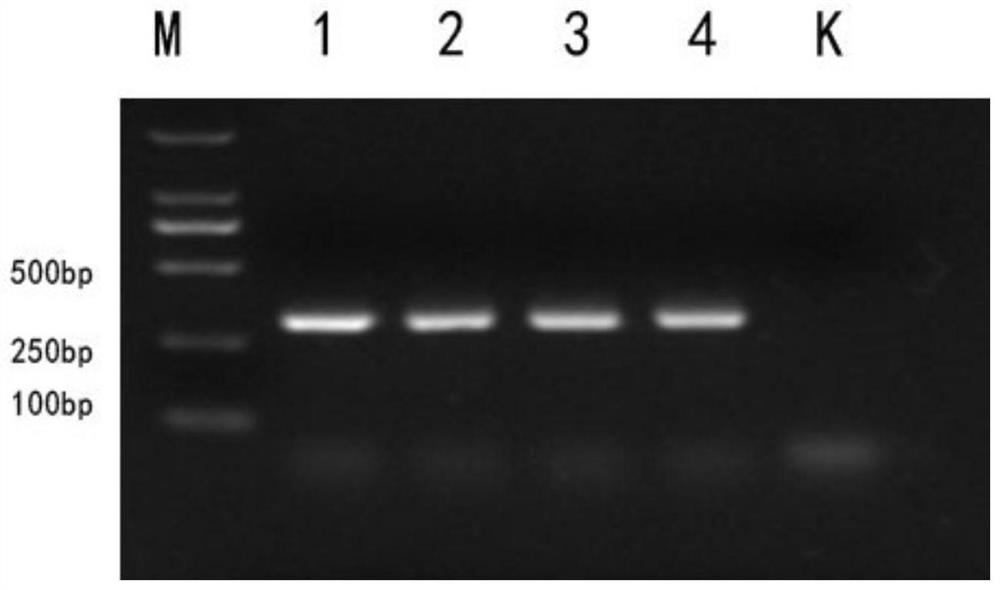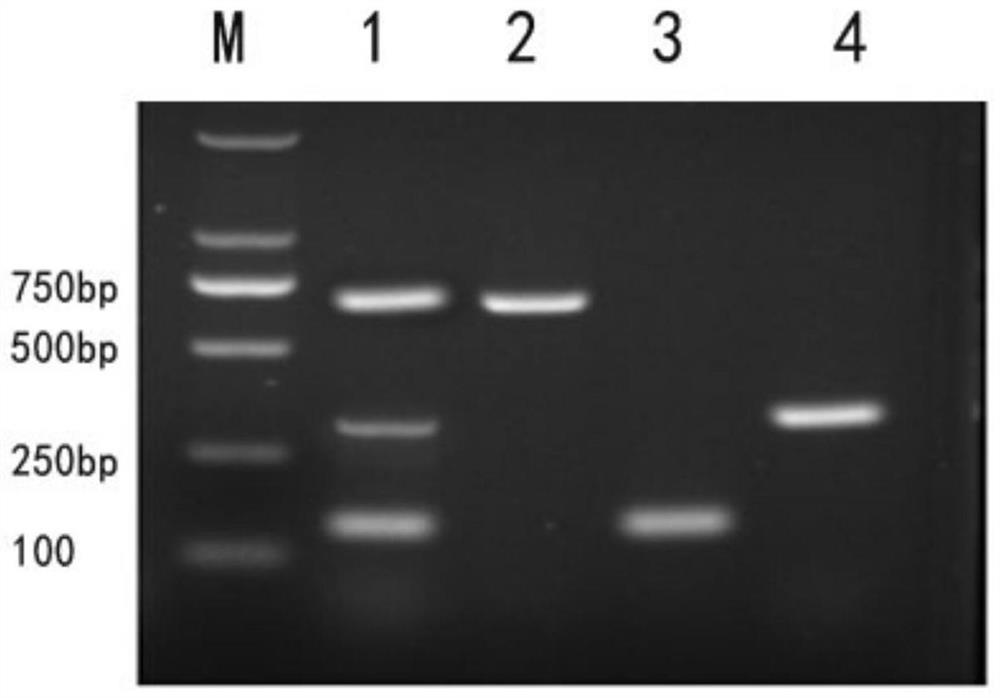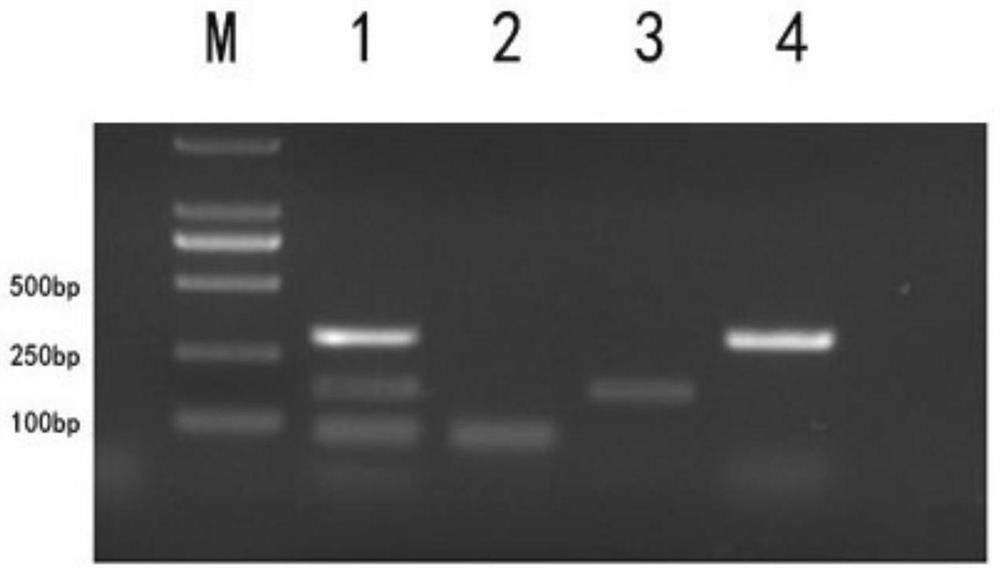PCR detection method and kit for tularemia and its subspecies
A technology of Tularensis and detection reagents, which is applied in the field of PCR detection methods and kits for Tularensis and its subspecies, and can solve the problem of molecular biology detection technology, etc. problem, to achieve the effect of reducing bad data, high sensitivity, and easy promotion
- Summary
- Abstract
- Description
- Claims
- Application Information
AI Technical Summary
Problems solved by technology
Method used
Image
Examples
Embodiment 1
[0051] The design of embodiment 1 tularemia PCR kit primer
[0052] 1. Materials
[0053] The typical sequences of four T. tularensis subspecies in the NCBI database were selected, and the sequence numbers were as follows: AJ1749949, AM233362, AM286280, CP000437, CP000439, CP000915, CP002558, CP003862, CP010115, CP010446, CP025778.
[0054] 2. Method
[0055] Use the database of the American Library of Medicine to compare the above representative sequences (https: / / blast.ncbi.nlm.nih.gov / Blast.cgi) to find the specific sequences of each subspecies.
[0056] 3. Results
[0057] Homology comparison results of various subspecies of T. tularensis see Figure 16 ; Specific fragment analysis results are shown in Table 1:
[0058] Table 1
[0059]
[0060] By further analyzing the fragments of unique genes, one unique gene was screened for each subspecies, and the designed primers are shown in Table 2:
[0061] Table 2
[0062]
Embodiment 2
[0063] The construction of embodiment 2 tularensis plasmid standard items
[0064] 1. Materials
[0065] EZ-T Fast Ligation Kit Genstar, 2×Taq PCR StarMix with Loading Dye were purchased from Beijing Kangrun Chengye Biotechnology Co., Ltd.;
[0066] Biospin gel recovery kit: purchased from Hangzhou Bioer Biotechnology Co., Ltd.;
[0067] Templates for 4 subspecies of T. tularensis: provided by the Key Laboratory of Binzhou Animal Husbandry and Veterinary Research Institute, Shandong Province.
[0068] 2. Method
[0069] According to the instructions of 2×Taq PCR StarMix with Loading Dye, use the primers in Table 1 to carry out the target fragments of the 4 subspecies of T. tularensis and the general detection segment of T. tularensis (ie, the target segment amplified by the universal primers, SEQ ID NO: 15) After amplification, 5 fragments were recovered using the Biospin Gel Recovery Kit; the recovered target fragments were ligated according to the instructions of the EZ-T...
Embodiment 3
[0074] Example 3 Tularemia PCR sample detection and method accuracy evaluation
[0075] 1. Materials
[0076] 30 unknown clinical samples from wild rabbits.
[0077] Fluorescent RT-PCR Detection Kit for Tularemia: TaqMan Francisetularensis Detection Kit was purchased from ThermoFisher.
[0078] 2. Method
[0079] (1) Genome extraction
[0080] For the preparation of clinical samples, take suspected disease materials or swabs of sick animals, add an appropriate amount of PBS, and follow-up extraction steps follow the method of bacterial commercial DNA extraction kits to obtain high-purity bacterial genomic DNA, which is stored in - Standby at 20°C.
[0081] Preparation and quantification of positive standard plasmid: Use the primers designed above to amplify the target fragment, connect to EZ-T vector, transform DH5α competent cells, extract and purify the plasmid vector, sequence to confirm the correctness of the inserted fragment, and use OD260 / 280 to quantify , stored...
PUM
 Login to View More
Login to View More Abstract
Description
Claims
Application Information
 Login to View More
Login to View More - R&D
- Intellectual Property
- Life Sciences
- Materials
- Tech Scout
- Unparalleled Data Quality
- Higher Quality Content
- 60% Fewer Hallucinations
Browse by: Latest US Patents, China's latest patents, Technical Efficacy Thesaurus, Application Domain, Technology Topic, Popular Technical Reports.
© 2025 PatSnap. All rights reserved.Legal|Privacy policy|Modern Slavery Act Transparency Statement|Sitemap|About US| Contact US: help@patsnap.com



